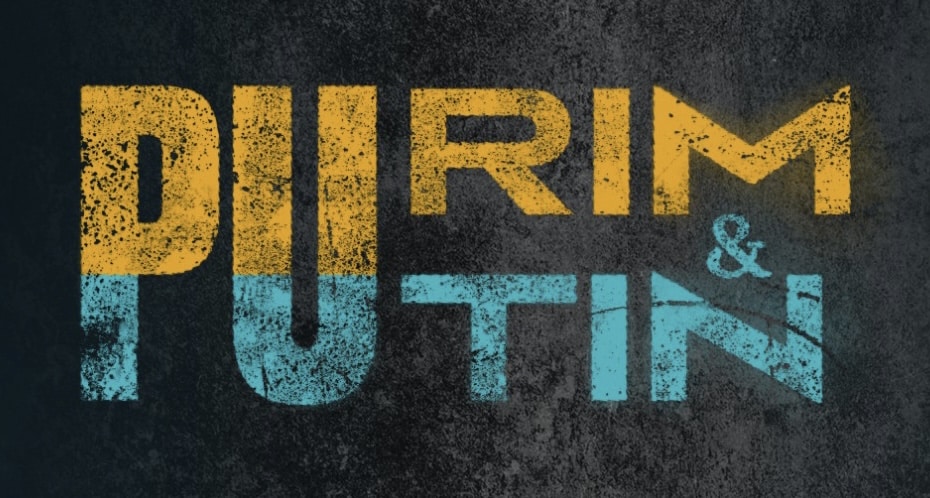Emerging Purim Patterns – Persian Style
Persian Gulf Wars 357 BCE- 2003
With all the upheaval and uncertainty around us, we are now in a time of the year that helps us ‘connect the dots’ in our lives and in world events.
Purim is upon us, and its powerful message of patterns resonates now more than ever.
The Persian Gulf is in the news as we prepare to celebrate Purim, which took place in ancient Persia.
One of the most striking elements of the Megillah (the scroll that tells the story Purim, which we read twice on that day) is not an event, but a non-event: G-d’s name is never mentioned in the entire book! Not once.
The primary reason for this is because in the Purim miracle G-d works behind the scenes. Yet, work He does; it’s up to us to recognize the underlying patterns in the ostensibly random events that led up to the miraculous conclusion.
Purim is a story of extremes. First an impending holocaust is about to decimate the entire Jewish people. Wicked Haman has persuaded King Achashverosh to annihilate all the Jews in his kingdom, which meant the entire Jewish population at the time – who were under the control of the Persian superpower. Then, just as quickly as it came to be the decree is turned around and the Jews are saved, and Haman and his co-conspirers are hanged.
The amazing part of the story is its unobtrusiveness. The entire story from beginning to end takes place in a period of nine years, resulting from events that to the naked eye could have appeared entirely random and circumstantial (see my article one month ago, Inexplicable Yet Again). Persian King Achashverosh happens to throw a party. When he invites his wife she happens to rebuff him, and in his anger he has her killed. The Jewess Esther happens to be chosen to become the new queen (no one knows her true identity). A while later Mordechai happens to overhear and foil an assassination attempt against the king. One night years later the king happens to have insomnia, and he happens to be read the story of Mordechai saving his life. He then happens to suddenly reward Mordechai. When Haman is ready to fulfill his evil plot, Esther happens to be there to thwart it.
Long story short – over a period of nine years circumstances are positioned in such a way where all the right people are in the right place and the right time to ensure that Haman does not exterminate the Jewish people!
If we were living then, all these events – spread over 9 years – could have appeared as random, isolated experiences. When you are too close to the events you can sometimes not see the forest from the trees. But in retrospect, when we read the Megillah on Purim, and we hear the sequence of events, we then can connect the dots and see the greater picture emerging – one that leads to an absolute miracle.
The message is clear, on both a global and personal scale.
Global events are all dots, often appearing disjointed. Every event is another dot in a picture. While we live through these events we only see the dots, the trees, not the forest. It is usually in retrospect that we can see the patterns emerging.
The same is with history as a whole. History is a process, with each respective generation making its contribution to the bigger picture. The achievements of each spoke in the wheel of history accumulates, but only when you recognize the process and the greater whole. This message has been lost on many nations and empires. Instead of seeing their role as part of the past and the future, they indulged in their power of the moment, they basked in the glow of their own achievements, failing to see themselves as dots, as links in the chain of history. Thus, their inevitable demise. A dot will be lost if it does not join its neighbors in creating the greater picture.
Purim teaches us to search for the patterns amongst the dots of our time. And when we see them, the 2360 years since Purim originally took place is not a wide span that separates then and now, but these years – the past and the present – become one continuum. Purim is not just some distant memory that we commemorate, but an event that lives on today just as it lived then.
Patterns create eternity. They connect the details, which are isolated on their own, and unite them in one tapestry.
Let’s look at some of the dots in our times.
Consider:
Persian Gulf War 2003.
Persian Gulf War 357 bce.
Persian Gulf War I in 1991 ended on Purim.
The ultimatum to Iraq today is for Purim eve.
Too many Persian dots to ignore.
What is it about this region – the Persian Gulf, and the Middle East in general – that continues to remain a hotbed in the spotlight?
Interesting to note as well that the Euphrates River, which runs through modern Iraq, is the fourth river running out of the Garden of Eden. This means that the Persian Gulf area is the place where all civilization and history began.
When you connect the dots, you recognize the pattern that this part of the world has some unique power and hold on mankind.
By connecting today’s events in the Persian region to those that took place at the same location in the time of Purim we also can begin to discover answers to many issues that puzzle us about today’s events. Primary among which is that our ultimate power to overcome any challenge is faith.
The story of Purim teaches us that through prayer and connection to Above, Mordechai and Esther led their people to victory. At the time they did not know how their salvation would come to be. But their faith and conviction allowed them the strength to transcend the individual fragmented ‘dots’ and be ready for the unexpected – that the impossible is possible. Not because of some external, sensational miracle, but because of the absolute faith that there is a ‘hand inside the glove,’ and whether we see it or not, behind the scenes there is a greater force at work.
“Mordechai did not bow.” By not conforming to the social standards and pressures of the time, Mordechai demonstrated true leadership and strength to overcome any challenge. Conformity may be the comfortable choice for the moment, but then you give this moment the power to enslave you forever.
Unity is the theme of Purim. “Assemble all the people.” We send each other food gifts and distribute charitable gifts to the poor. We sit together for a festive Purim meal – all in order to strengthen our bonds in one great show of solidarity, to counter (in Haman’s words) “one nation…scattered and dispersed among the nations.” Yet again, the theme of connecting the fragmented dots.
And finally, the children play a prominent role in Purim. Recognizing the power of the children, Haman planned to target them. To counter that, Mordechai at the time gathered the children to teach them Torah.
“Out of the mouths of children and nursing babies You fashioned an invincible might… to still foe and avenger.” (Psalms 8:3)
So too today, we put special focus on the children during Purim.
Unencumbered by their own egos and material involvements, children are a step closer to the truth than adults. Undistracted by the moment, they can often see the bigger picture, unlike adults who are usually so consumed with the moment.
Children therefore, with their faith cultivated, are our source of strength and a power to counter any adversary. They can help us not be daunted by the immediate events, and recognize the historical patterns that are shaping our lives today.
The Purim message of recognizing these patterns allows us to face our Persian challenge today.
One final ‘dot’ should be mentioned – a ‘dot’ that can help illuminate all the other dots and patterns of current events. To quote a fascinating Midrash – cited extensively by the Rebbe (Rabbi Menachem Mendel Schneerson) during the Persian Gulf War in 1991:
The leader of Persia will attack an Arab nation and the Arab king will go to Aram for advice. The leader of Persia will bring destruction to the entire world, and all nations will be outraged and confused… and they will say, “Where shall we come and go?” G-d will answer them: “My children, do not be afraid, everything I have done, I have done for you. Why are you afraid? Do not fear, the time of your Redemption has arrived. (Yalkut Shemoni Isaiah, remez 499)
The Rebbe associated the “leader of Persia” with Saddam Hussein of present day Iraq attacking “an Arab nation” called Kuwait. The Arab kingdom would turn to Aram, the world’s superpowers. Now, in 2003 this confrontation is coming to a head.
Purim today tells us that we need not fear, for a greater picture is emerging. Yes, our confusion and fear is acknowledged, yet we are reassured that the world is poised at the threshold of a new reality, and it is our awareness and actions that help bring it to actualization.
Practically speaking: To connect the dots of global events and of history we begin by connecting the dots in our personal lives:
Each of us in our lives has many dots. More often than not they may appear to be random, circumstantial. Purim teaches us to look closer at our lives; to focus in – it always helps to employ the assistance of an objective friend – and recognize the deeper patterns in our lives. To see your place in this world, your contacts, your profession, all your experiences – positive and negative – as opportunities to fulfill your higher mission, to bring personal and global redemption.
This Purim we must each ask ourselves: What am I doing to see the deeper truths in my own life and in the life of the universe today.
2360 years separate Purim today from the first Purim back in Persia of old. Our power lies in bridging these years by recreating and reliving Purim and its message today.
2360 years then become – not a distancing force – but an awesome power of continuity that has overcome every challenge it has faced. Not only survived by thrived. Ask yourself: Do you have a more powerful force in your arsenal?







